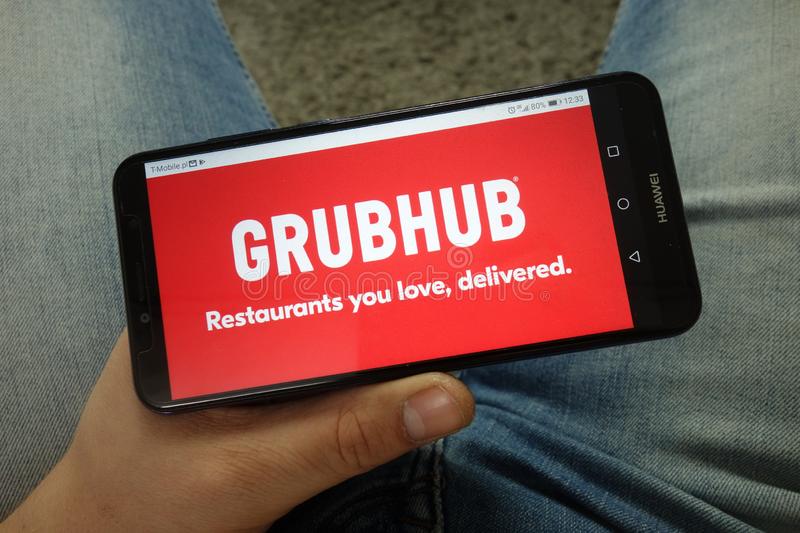Grubhub Sued For Allegedly Deceiving Customers
Grubhub is facing serious allegations in Washington D.C. pertaining to intentional customer deception.
This article is more than 2 years old

Grubhub is facing a lawsuit from the District of Columbia which claims the company uses deceptive trade practices in the day-to-day running of its business. This includes excessive hidden fees, out-of-date restaurant prices, and false advertising. In the complaint, Attorney General Karl Racine notes that the food delivery service often misrepresents what’s offered on their app and website.
For example, Grubhub has a list of over 1,000 partner restaurants available for delivery in D.C. But these food outlets have no contracts with the delivery company. This means the eateries have been added to the platform’s directory without the owners’ consent. “This deceptive conduct significantly impacted consumers, as the menu offerings, prices, and hours for non-partner restaurants were often out-of-date or incorrect,” the complaint says via NPR. There was a greater likelihood that those orders would take longer to fill, would be incorrect, would be cold, or would eventually be canceled.
In response to the complaint, Grubhub officially rejected the charges. The Chicago-based company said that it complies with the district’s laws and some of the practices mentioned in the lawsuit have been discontinued. “We will aggressively defend our business in court and look forward to continuing to serve D.C. restaurants and diners,” the company said in a statement to Associated Press.
Detailing the delivery company’s deception further, the lawsuit says prices for local restaurants on Grubhub’s app and website were always higher than in-store prices, despite the company’s stating they are the same. Customers also have to pay various things which include a delivery fee, a service fee, and a small order fee for purchases under $10. All of this increases prices further. Additionally, when folks got to the checkout page, Grubhub disguised those fees by adding them in the same line item as taxes.

This practice constitutes a digital dark pattern, the lawsuit added about Grubhub. This refers to intentionally using design features that deceive, coerces, or manipulate consumers into making choices that are either not what they intended, or not in their best interests. The suit also recounts the delivery company’s Supper for Support initiative which was active in April and May 2020. The promotion offered discounts to customers to support restaurants during the Covid-19 pandemic. But the lawsuit says the costs of those discounts landed on those restaurants.
In light of these extensive allegations of malpractice by the District of Columbia, Grubhub said it plans to fight the lawsuit. Speaking to The Verge, spokesperson for the delivery company Katie Norris said, “During the past year, we’ve sought to engage in a constructive dialogue with the D.C attorney general’s office to help them understand our business and to see if there were any areas for improvement.” The company also expressed disappointment at the attorneys moving forward with this lawsuit because their practices have always complied with D.C law.
Meanwhile, D.C’s Office of the Attorney General is encouraging Grubhub to stop the listed practices. They also want the company to pay civil penalties, attorney’s fees, and fees for each violation of D.C’s Consumer Protection Procedures Act.




